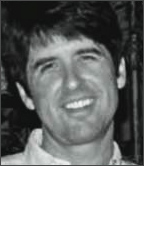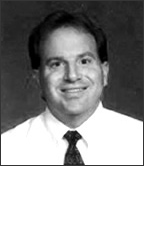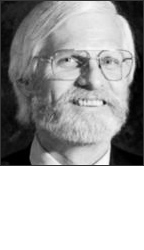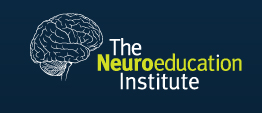
 Adolescent Brain; Integration of Emotion and Cognition in Adolescents
Adolescent Brain; Integration of Emotion and Cognition in AdolescentsAbigail Baird, Ph.D. - Assistant Professor of Psychology
Vassar College
Abigail Baird earned her B.A. in biopsychology from Vassar College and her M.A. and PhD. in developmental psychology from Harvard University. Her research interests include the integration of emotion and cognition across development, with a particular focus on neural development during adolescence. She is currently working on a series of studies that examine how teenagers use emotional and cognitive information to inform their decision-making. Her other interests include neuroimaging, as well as the influence of psychological science on law and public policy.
 The Study Process & Learning Techniques; Notetaking Techniques;
The Study Process & Learning Techniques; Notetaking Techniques;Applying Brain Science to Early Childhood Education
Kimberly Carraway, Ed.M. - Learning Specialist, Director
Carraway Center for Teaching & Learning
Kimberly Carraway, Ed.M., is a learning specialist and an educational consultant specialized in teaching and learning strategies. She holds degrees in Cognitive Studies and Elementary Education from Vanderbilt University and in Learning and Teaching from Harvard University's Graduate School of Education. Ms. Carraway focuses her work on the integration of cognitive neuroscience and educational practice. She speaks nationally to educators bringing the latest research on how learning occurs and relevant applications of the research directly to the classroom. Ms. Carraway's passion for students and their learning process is what inspires her to design personalized strategies for different kinds of learners. Ms. Carraway currently lives in Nashville, Tennessee, where she directs the Carraway Center for Teaching and Learning.
 Motivation & Learning; Storytelling & Writing; and Math and the Brain
Motivation & Learning; Storytelling & Writing; and Math and the Brain Michael Connell, Ed.D. - Principal
Institute for Knowledge Design, LLC
Michael W. Connell, Ed.D. holds a Master's degree in Computer Science from the Massachusetts Institute of Technology and a Doctorate in Education from Harvard University. He has been a Software Design Engineer at Microsoft Corporation, Sunburst Communications, and Lexia Learning Systems; an Instructor at the Harvard Graduate School of Education; and a Visiting Assistant Professor in the Educational Neuroscience program at Dartmouth College. Dr. Connell's primary research focus is on translating insights from brain and cognitive science into useable knowledge for educators. He has applied insights from his theoretical research to develop applications in a variety of domains, including instructional design, motivation, intelligence analysis, effective communication (drawing on the psychology of storytelling), and intelligent tutoring systems for K-12 classrooms. Dr. Connell is a principal at the Institute for Knowledge Design in Arlington, Massachusetts.
 Neuropsychology of Mathematics; Neuropsychology of Reading Disorders; Neuropsychology of Written Language Disorders
Neuropsychology of Mathematics; Neuropsychology of Reading Disorders; Neuropsychology of Written Language DisordersSteven G. Feifer, Ed.D., NCSP - School Neuropsychologist
Frederick County Public Schools
Steven G. Feifer, D. Ed., NCSP, ABSNP is a nationally renowned speaker in the field of learning disabilities and has conducted nearly 200 professional seminars for educators and psychologists. He is dually trained as both a Nationally Certified School Psychologist from James Madison University, and is also a diplomate in school neuropsychology. His doctorate work was conducted at Indiana University of Pennsylvania, with research stints at the National Institute of Health (NIH). Dr. Feifer has co-authored six books on learning and emotional disorders in children. He currently works as a school psychologist in Frederick, MD, and is a course instructor for the ABSNP neuropsychology training program. Dr. Feifer was voted the Maryland School Psychologist of the Year in 2008, and also awarded the 2009 National School Psychologist of the Year by the National Association of School Psychologists.
 ADHD Interventions; In-Class Interventions, Movement & Attention; Impact on Learning; and 12 Keys to Learning
ADHD Interventions; In-Class Interventions, Movement & Attention; Impact on Learning; and 12 Keys to LearningJeb Schenck, Ph.D. - Science Teacher/ Graduate School Adjunct Professor
Hot Springs Co. High School & University of Wyoming (Laramie)
Jeb Schenck is a classroom teacher, memory researcher and Adjunct Professor with the University of Wyoming. His teaching has received repeated national recognition, including the National Science Teacher of the Year, Tandy Scholar Teacher, Genentech Access Excellence Fellow, Einstein Finalist, and Presidential Awardee.' Dr. Schenck also currently teaches graduate courses on the brain and learning, conducts a program on long-term memory research, and directs a neurofeedback program for ADHD students. He received his doctorate in memory research at the University of Wyoming. He conducts workshops and speaks across the country and internationally. He is the author of Learning, teaching, and the Brain; Teaching the Brain, Best Ideas & Practices, and has a forthcoming book titled ‘Implementing Neuroeducation, A Practical Guide for Educators’, due in 2010.
 Techniques in Assessing Understanding; Science Instruction; Building Bridges in Mind, Brain & Education
Techniques in Assessing Understanding; Science Instruction; Building Bridges in Mind, Brain & EducationMarc Schwartz, Ed.D. - Professor of Mind, Brain & Education
University of Texas Arlington
Marc Schwartz is Professor of Mind, Brain and Education at the University of Texas at Arlington (UTA). He is also serving as the Vice President of the International Mind, Brain and Education Society. Marc's current focus at UTA is to develop the new Southwest Center for Mind, Brain and Education. His goal is to create a collaborative setting where researchers, policy makers and educational practitioners can focus on the cognitive and emotional changes and challenges that emerge and evolve for students and teachers as learning contexts change. Marc is also an Associate Researcher in the Science Education Department at the Harvard-Smithsonian Center for Astrophysics (CfA). His research at the CfA focuses on how the dynamic enterprise of learning and teaching unfold in physics, chemistry, and biology education. Here the challenges of coordinating complex ideas provide a rich context for exploring the difficulties that students and teachers face in understanding scientific concepts and the additional challenge that teachers face in helping students to construct these ideas so that they can take on personal meaning.
 The Developing Brain; Understanding Psychoeducational Evaluations
The Developing Brain; Understanding Psychoeducational EvaluationsPatti van Eys Ph.D. - Assistant Clinical Professor of Psychology and Psychiatry
Vanderbilt University
Dr. Patti van Eys is a licensed clinical psychologist and Assistant Professor of Psychiatry and Psychology at Vanderbilt University. A member of the psychology department faculty since 1995 and then jointly, a member of the psychiatry faculty since 2003, she serves as the clinical director of the Vanderbilt University Center of Excellence for Children in State Custody, a center that specializes in comprehensive psychological assessments of high risk children who often have profiles with complicated combinations of genetic, developmental and environmental factors. Before coming to Nashville, Dr. van Eys was a psychologist at the National Children’s Advocacy Center in Huntsville, Alabama where she gained formative experience working with children with complex maltreatment trauma.
Dr. van Eys is a state leader in the area of serving high risk children. In addition to being a faculty leader on the Tennessee TF-CBT Learning Collaborative, she serves on several task forces and boards including the Department of Children’s Services Commissioner’s Mental Health Task Force, The Tennessee Connecting for Children’s Justice annual child maltreatment symposium task force, Tenncare Best Practice Guidelines task force for Childhood PTSD and Attachment Disorders, Tennessee Voices for Children Advisory Board, and the Collaborative Attachment Network advisory board. Aside from teaching and supervising both Vanderbilt psychology and psychiatry trainees in formal classes and applied training settings, Dr. van Eys trains extensively at the local, regional, and national level in the area of child maltreatment and child mental health issues. Further, Dr. van Eys is currently conducting a pilot intervention project with foster and adopted children and their families using Parent Child Interaction Therapy (PCIT) and an expanded PCIT model focusing more on the attachment processes and parent education.



